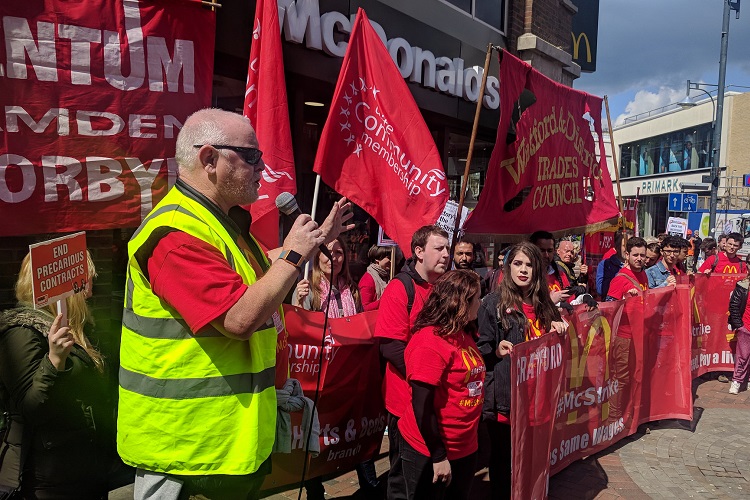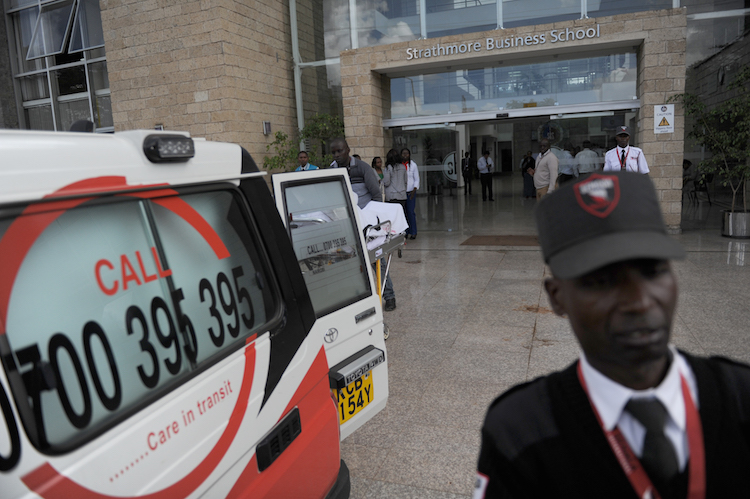With the ‘future of work’ upon us, organised labour is both the first and last line of defence in ensuring that the brave new world of work looks better than its past. This is no easy task. Across the world, collective bargaining is being dismantled, social dialogue is under threat, trade union membership is dwindling, and governments and businesses have launched a protracted attack on the right to strike.
For workers, the immense possibilities of digital transformation are also matched by its threats: automation, deregulation, increased casualisation and disintermediation have so far resulted in most workers getting an ever-decreasing slice of the pie. This is on top of the fact that 60 per cent of the world’s 2.9 billion workers are informal, labouring without even basic social protection, minimum wages or health and safety standards.
Trade unions know the only solution is to organise and in this edition of our summer series of article round-ups, we are highlighting some the work unions are doing to ensure that workers’ rights are protected, strengthened and advanced through collective action.
The Fight for $15 campaign, for example, started as a grassroots movement to increase the minimum wage in the US fast-food industry. “Since the campaign began in November 2012, 22 million workers in the US have seen state and city level pay increases,” writes journalist Steve Ruston, and fast-food workers across the world have been inspired to take similar action, proving that transnational organising and solidarity is central in upholding workers’ rights against global capital.
Organising informal workers is also key to revitalising the trade union movement. All over the world – as our 2016 special report on formalising informal workersdemonstrated – unions are opening their doors to informal workers such as domestic workers, waste pickers and street vendors who for too long have been locked out of traditional union structures. In Kenya, as Ngugi Njoroge reports, some of the 45,000 security guards that belong to the Kenya National Private Security Workers’ Union (KNPSWU) have seen their salaries increase by as much as four times since joining.
Embracing innovation, new forms of organising and new partnerships is essential to the survival of the trade union movement. In the story of The Workers Lab, journalist Tom Cassauwers writes about the Service Employees International Union-backed tech incubator that is using technology to build workers’ power. “Essentially we are seeking new inventions that bring working people economic power, challenging systems within capitalism that have constrained workers historically,” explains The Workers Lab founder Carmen Rojas. Meanwhile, Nithin Coca reports from Japan on how new legal provisions for the creation of worker coops could help reduce inequality in the country, reinforcing international research that shows that partnerships between cooperatives and trade unions help secure rights for self-employed workers, as well as expanding access to services such as childcare and elder care.
Extending solidarity is key to the future of organised labour. Trade unions are already reaching out to women, young people, racialised workers, LGBTQI workers and disabled workers, however, the inclusion of migrant workers – both documented and undocumented – is crucial. In Turkey, DISK international officer Kivanç Eliaçık reminds us that around 56 per cent of the 1.6 million Syrian refugees working in the country are forced into precarious, short-terms and unregulated work. “Ultimately,” Eliaçık urges, “all workers must raise their voices in support of equal pay for equal work for everyone.”
“If you don’t take them on globally, you won’t win” – how Fight for $15 in the US inspired the UK’s McStrike
By Steve Rushton

“If the corporation you work for makes over US$21 billion in profit, why should you have to rely on state handouts?”
“Most of us are on zero hours contracts, so we don’t know how many hours we will be getting each week. The managers cut one of my collegue’s hours so he struggles to pay rent. He constantly begs for shifts from co-workers, but the management doesn’t care,” said Annalise Peters, a McDonald’s worker in the UK city of Cambridge, who took part in a one-day strike on 1 May 2018.
“Many workers are students trying to afford Cambridge’s living costs,” she said, a situation made all the more unpalatable given that McDonald’s was summoned to the European Parliament last week over evidence that it had deliberate avoided paying over €1 billion in corporate taxes in Europe between from 2009 to 2013.
“They are often scheduled to work even after forewarning management about exams and lectures. Management think we are dispensable; all they care about is cutting labour costs and filling shifts.”
Read the full article on Equal Times
Kenya’s private guards gain security through union organising
By Ngugi Njoroge

In Kenya, private security guards are often on the frontline in the fight against terrorism.
Private security guard John Wafula spends his 12-hour work day on the look out for anything that could harm visitors to the Nation Centre building in the heart of Kenya’s capital, Nairobi.
The heavily built 47-year-old father-of-three looks smart with his closely cropped hair, his clean boots and his well pressed uniform. He finishes work at 6pm before starting the hour-long commute from the Central Business District to his family at home in Kawangware.
With a monthly salary of 20,000 Kenyan shillings (approximately US$196) Wafula is one of the 45,000 security guards that belongs to the Kenya National Private Security Workers’ Union (KNPSWU), and he is happy with his membership.
“It was very tough ten years ago. The working conditions were bad and low pay was the order of the day. But now things have changed thanks to vibrant representation by our union,” Wafula tells Equal Times.
Read the full article on Equal Times
The Workers Lab: the union-backed accelerator helping to disrupt capitalism
By Tom Cassauwers

Co-directors Ebele Ifedigbo (centre) and Lanese Martin (right) pose with fellow Biseat Horning (left) at the offices of The Hood Incubator in Oakland, California. The Oakland-based non-profit, which provides training and mentoring to minority cannabis entrepreneurs, was one of the winners of The Workers Lab 2018 Innovation Fund.
“Last month the first 800 workers started out, and these are people who will have access to healthcare for the first time ever,” explains Carmen Rojas proudly. The 800 workers she is talking about are part of the California Harvesters, a ‘labour trust’ through which farmworkers in California can, as a cooperative, negotiate with farm companies for higher wages and better working standards. Right now it’s the biggest labour cooperative in the United States and it was convened by The Workers Lab, the organisation of which Rojas is CEO.
The Workers Lab is, however, not a traditional trade union. It is more comparable to a tech incubator than anything currently associated with organised labour. In true start-up fashion, The Workers Lab funds, mentors and sometimes initiates projects such as the California Harvesters; it even runs innovation workshops inspired by Google’s design sprints. All of this is done to support a new, worker-oriented economy based on cooperatives, social enterprises and worker participation.
Read the full article on Equal Times
Can a new legal framework for worker coops address growing inequality in Japan?
By Nithin Coca

With the right legal provisions, worker coops say they could play a much larger role in addressing Japan’s many social challenges.
Japan’s cooperative sector has serious potential. Not only is it home to the world’s largest consumer coop, the Japan Consumers’ Cooperative Union, but the largest agricultural coop in the world (Japan Agriculture) and the world’s fifth largest insurance coop (Zenkyoren) are also proudly Japanese. However, Japan still has relatively few worker cooperatives. This is because there is no legal framework for the creation of worker coops in the country. Could the submission of a new proposed law to parliament later this year change that? The Japan Workers’ Cooperative Union (JWCU) certainly hopes so.
“For almost 20 years, we have developed our legalisation campaign,” says Osamu Nakano, international relations officer for the JWCU. “There are 1800 local governments in Japan; nearly 1000 [of them] have already submitted petitions for the enactment of a worker coop law to the central government.” After years of building momentum and broad support, the JWCU believes that 2018 will be the year that Japan realises the full potential of worker cooperatives and increases workers’ economic power.
Read the full article on Equal Times
Syrian refugees have a right to equal pay for equal work
By Kivanç Eliaçık

People pass an Arabic sign for a falafel shop in ‘Little Syria’, the nickname for Istanbul’s Aksaray neighbourhood, now home to a massive community of Syrian refugees.
We live together and we work together. Some 1.6 million Syrians in Turkey are of working age, but just 20,000 have work permits. As a result, tens of thousands of Syrians are working in cities all over Turkey without documentation or any basic labour rights in every field, especially construction, textiles and agriculture.
Syrians work more hours than anyone else, and yet they earn less than all other workers. They receive their wages late, or not at all. They enjoy no benefits and no job security, while working Syrian children and women are frequently subjected to harassment and discrimination while trying to earn a living.










